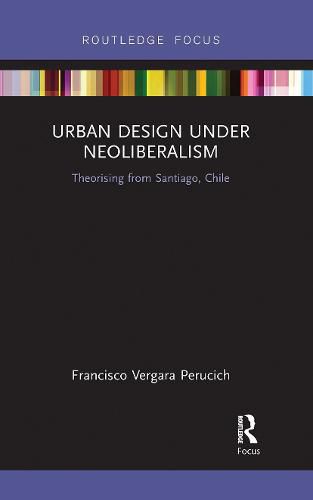Readings Newsletter
Become a Readings Member to make your shopping experience even easier.
Sign in or sign up for free!
You’re not far away from qualifying for FREE standard shipping within Australia
You’ve qualified for FREE standard shipping within Australia
The cart is loading…






This book discusses the status of urban design as a disciplinary field and as a practice under the current and pervasive neoliberal regime.
The main argument is that urban design has been wholly reshaped by neoliberalism. In this transformation, it has become a discipline that has neglected its original ethos - designing good cities - aligning its theory and practice with the sole profit-oriented objectives typical of advanced capitalist societies. The book draws on Marxism-inspired scholars for a conceptual analysis of how neoliberalism influenced the emergence of urbanism and urban design. It looks specifically at how, in urbanism’s everyday dimensions, it is possible to find examples of resistance and emancipation. Based on empirical evidence, archival resources, and immersion in the socio-spatial reality of Santiago de Chile, the book illustrates the way neoliberalism compromises urban designers’ ethics and practices, and therefore how its theories become instrumental to the neoliberal transformation of urban society represented in contemporary urbanisms.
It will be a valuable resource for academics and students in the fields of architecture, urban studies, sociology and geography.
$9.00 standard shipping within Australia
FREE standard shipping within Australia for orders over $100.00
Express & International shipping calculated at checkout
This book discusses the status of urban design as a disciplinary field and as a practice under the current and pervasive neoliberal regime.
The main argument is that urban design has been wholly reshaped by neoliberalism. In this transformation, it has become a discipline that has neglected its original ethos - designing good cities - aligning its theory and practice with the sole profit-oriented objectives typical of advanced capitalist societies. The book draws on Marxism-inspired scholars for a conceptual analysis of how neoliberalism influenced the emergence of urbanism and urban design. It looks specifically at how, in urbanism’s everyday dimensions, it is possible to find examples of resistance and emancipation. Based on empirical evidence, archival resources, and immersion in the socio-spatial reality of Santiago de Chile, the book illustrates the way neoliberalism compromises urban designers’ ethics and practices, and therefore how its theories become instrumental to the neoliberal transformation of urban society represented in contemporary urbanisms.
It will be a valuable resource for academics and students in the fields of architecture, urban studies, sociology and geography.